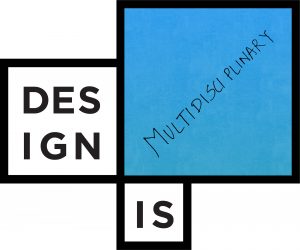Multisensory Graphic Communication for Blind and Partially Sighted Individuals (BPSI) by Mitali Kamat
 Welcome to my exhibit and thanks for visiting!
Welcome to my exhibit and thanks for visiting!
Before you go ahead and explore I would like to give you a little bit of a background about myself. I was born and brought up in Mumbai, India and moved to the United States to pursue my Master’s in Occupational Therapy in 2012.
After graduation I have largely worked with the pediatric population, I have been working as a school based occupational therapist in public school systems for over 6 years now. A few years ago I felt the need to explore the area of assistive technologies (AT) as most of the population I was serving had multiple disabilities and were largely AT users. The process of being trained in AT and exploring the world of AT introduced me to the field of inclusive design. I became increasingly interested in collaborating with design organizations and dabbled in building adaptive aids specifically designed for the students I was working with. I realized that it was the process of designing with collaborators from different fields of expertise and the students themselves that made my work life most meaningful.
“It was the process of designing with collaborators from different fields of expertise and the students themselves that made my work life most meaningful.”In my major research project I plan on exploring the area of graphic communication for blind and partially sighted individuals and the importance of multisensory graphic communication tools. Multisensory aspects of drawing and writing and it’s impact on mental imagery has always been a topic of interest for me. In my day to day work life I have frequently used multisensory tools such as wiki sticks, salt trays, sand, pipe cleaners etc to target letter formation in children with special needs. I plan on exploring multisensory components that can be integrated into a digital drawing tool for blind and partially sighted individuals. It has been an interesting journey till now and through the Master’s in Inclusive Design Program I have had the opportunity to meet, collaborate with and learn from a diverse set of individuals. I have recently been collaborating with the Institute of Human Centered Design in Boston and working on a project focused on workplace inclusion for blind and visually impaired individuals.
To continue exploring this exhibit click on the tab on the bottom right corner of the page.

